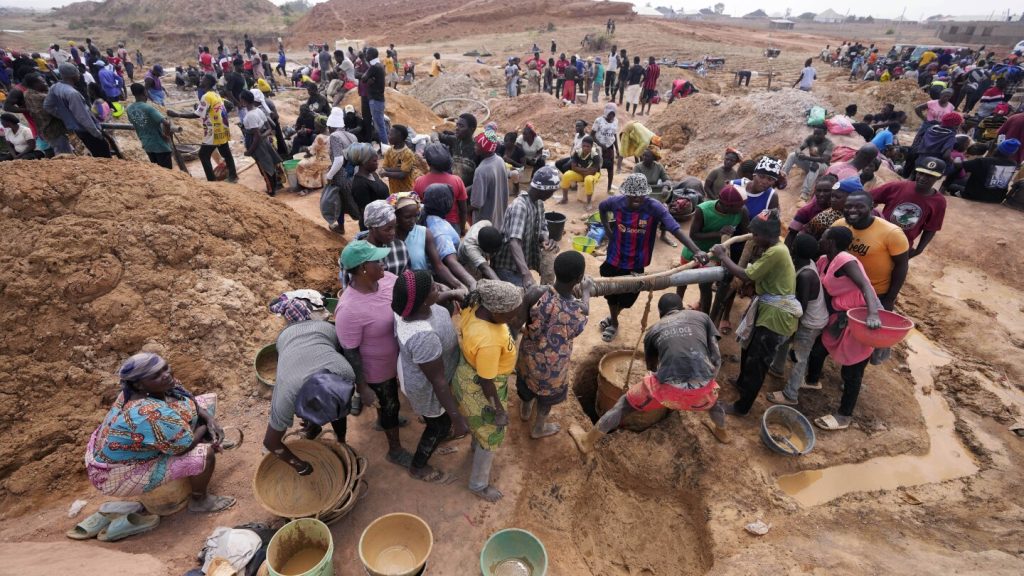Nigeria’s government is cracking down on illegal mining, especially for critical minerals like lithium, which are used in batteries for electric vehicles, smartphones, and power systems. The recent arrests of unlicensed miners aim to regulate the mining operations, curb illegal activity, and better benefit from the country’s mineral resources. The global demand for lithium, tin, and other minerals has increased due to the clean energy transition, leading to the proliferation of illegal mines in remote areas with minimal government presence. Illicit mining practices have also been linked to arming militia groups in the north of the country.
A recent raid in a remote market in Kishi, in Nigeria’s southwestern Oyo State, resulted in the arrest of 32 individuals, including two Chinese nationals, local workers, and mineral traders. The market had become a center for illicit trade in lithium mined in hard-to-reach areas, where clandestine searches by Chinese nationals had taken place before engaging locals to dig for them. The community raised concerns about the insecurity that often follows illegal mining activities, prompting the state government to take action against the illegal operations.
China’s dominance in the global electric vehicle supply chain extends to Nigeria, where Chinese-owned companies employ vulnerable people from conflict-affected regions in mining operations. The involvement of Chinese nationals and companies in environmentally damaging practices, exploitative labor, and illicit mining has raised concerns and led to multiple arrests involving Chinese nationals in Nigeria. President Bola Tinubu has attributed the worsening conflicts in the country’s north to illegal mining activities that fund armed groups.
Nigeria has emerged as a new source of lithium in Africa due to high global demand, but illegal activities in the extractive sector deprive the government of due revenues. Conflict, climate change, and socioeconomic strains have created a vulnerable demographic, providing a cheap workforce for mining sites. To combat resource theft that causes annual losses of $9 billion to the government, Nigeria has established a 2,200-strong corps of mining marshals to curb illegal mining activities. Efforts are ongoing to address the issue through law enforcement agencies and the new mining corps.
Before the recent raids, the mining corps had already made arrests of trucks laden with lithium on the outskirts of Abuja and raided locations in Nasarawa State, leading to the apprehension of Chinese nationals and seizure of tons of lithium. The cases are now in court, with convictions and sentences being handed down to those involved in illegal mining activities. The government is also encouraging artisanal miners in tin-abundant areas like Jos to form cooperatives and operate legally, providing support to communities whose livelihoods depend on mining.
Nigeria’s long neglect of the solid minerals sector has allowed for the proliferation of illegal mining activities, impacting communities that rely on mining for their livelihoods. The government is taking steps to address these issues, including cracking down on illegal mining, encouraging legal operations, and investing in the regulation of the extractive sector. Efforts to combat resource theft and illicit mining are ongoing as Nigeria seeks to benefit from its mineral resources while curbing illegal activities that fund armed groups and harm communities.


